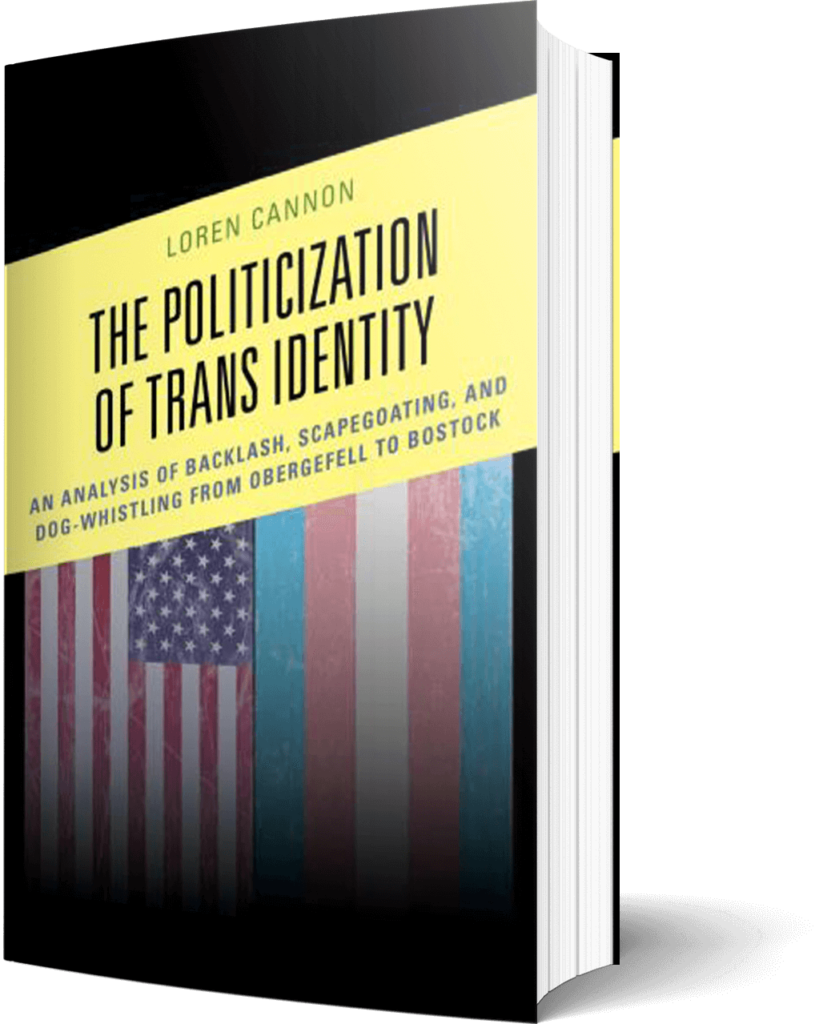
Loren received his Ph.D. in Philosophy at Arizona State University in 2006. He specializes in trans-theory, feminist ethics, applied ethics, and ethical theory. His publications have focused on trans-theory, feminist ethics, collective responsibility and collective belief. Loren has presented nationally and internationally on trans-related subjects and is the author of the timely book on national politicization called “The Politicization of Trans Identity: An Analysis of Backlash, Scapegoating, and Dog-Whistling from Obergefell to Bostock,” from Lexington Press.
Loren’s publications include:
“Firestonian Futures and Trans-Affirming Presents” in Hypatia: A Journal of Feminist Philosophy, Spring 2016.
“Masculine Vulnerabilities and Human Connections,” a chapter in Manning Up: Transsexual Men on Finding Brotherhood, Family, and Themselves. Transgress Press. 2014.
“Moral Taint: Narrative and Identity” in Journal of Philosophy in the Contemporary World, Spring 2011.
“Trans-marriage and the Unacceptability of Same-Sex Restrictions.” Social Philosophy Today: Gender, Diversity, and Difference, 2009.
“Valuing: Individual and Collective” in Public Affairs Quarterly, Oct. 2007
“Compassion: A Rebuttal of Nussbaum” as a chapter in Feminist Interventions in Ethics and Politics, 2005


WORK EXPERIENCE
Humboldt State University: 2006-Present
Philosophy Lecturer Humboldt State University
Present Responsibilities of Position: I typically teach 15 credit hours each semester. While not required by my position, I also participate in department decision making.
Loren’s New Book
The Politicization of Trans Identity
An Analysis of Backlash, Scapegoating, and Dog-Whistling from Obergefell to Bostock
Podcast Interview About the Book
“A superbly researched, powerful analysis and critique of the politicization of trans identity, from the backlash against the Supreme Court ruling on same-sex marriage to the Court’s arguments for and against protecting trans individuals under sex discrimination law. Cannon deftly weaves extensive discussion of the law, philosophical analyses of contemporary politics, and impassioned protest into a truly enlightening and important book.”
“In a world where what usually passes for discussion of trans issues consists mainly in social-media sniping, Loren Cannon’s lucid, rigorous new book is a breath of fresh air. Whether his arguments persuade you, intrigue you, provoke you—or, variously, all of the above—you cannot help but be transformed by them. Anyone seeking insight into this important topic should buy this book.”
“The Politicalization of Trans Identity offers a concise and critical intervention within philosophical studies of the co-enabling functions of gender, sexuality, class, and race within U.S. law, including a highly relevant focus on the increasing forms of anti-trans legislation and trans-directed violence occurring over the last decade. Cannon’s careful periodization of the Obergefell decision (2015) to the Bostock ruling (2020), as well as his detailed analyses of those Supreme Court cases and their accompanying public reactions are exemplary of the scholarly breadth and depth needed on trans issues in philosophy today.”

